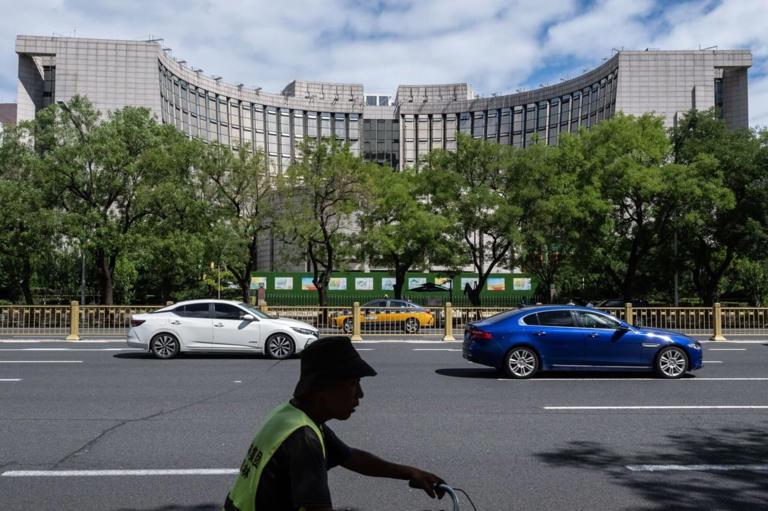China’s central bank announced a series of measures Tuesday aimed at reviving its slowing economy and countering a prolonged property market downturn.

People’s Bank of China (PBOC) Governor Pan Gongsheng told reporters in Beijing that the bank would cut the reserve requirement ratio for commercial banks by 0.5 percentage points “in the near term.” This move is expected to free up more money for lending.
The PBOC also slashed interest rates on its loans to commercial banks and reduced required down payments for some property purchases. Pan stated that down payment requirements for second homes would be lowered to 15% from 25%, and mortgage interest rates would be cut by about 0.5%.
“These measures will help 50 million households and 150 million people, reducing household interest expenses by an average of about 150 billion yuan ($21 billion) a year,” Pan said.
The announcements sparked a rally in Chinese stock markets. Hong Kong’s Hang Seng index jumped 4.1%, while the Shanghai Composite index rose 4.2%.
Pan and other officials also promised new policies to stabilize the stock market, which has largely stagnated since peaking before the 2008 global financial crisis.

These moves come as China grapples with economic challenges stemming from the COVID-19 pandemic and a struggling property sector. Unlike many Western economies battling inflation, China has been contending with slowing growth and deflationary pressures due to weak demand.
The property market, a crucial component of China’s economy, has floundered since authorities cracked down on excessive borrowing by developers several years ago. This led to defaults and unfinished housing projects, dampening consumer confidence.
Analysts cautiously welcomed the coordinated approach. Julian Evans-Pritchard of Capital Economics called it “a step in the right direction” but added that “it will probably be insufficient to drive a turnaround in growth unless followed up with greater fiscal support.”

Some economists remained skeptical about the package’s effectiveness. Rory Green and Freya Beamish of TS Lombard commented, “The package is encouraging, but insufficient to put a floor under the property market and wider economy.”
China’s economy grew at a 4.7% annual rate in the last quarter after expanding 5.3% in the first three months of the year. Recently, Chinese leader Xi Jinping urged officials to do more to stimulate growth.
The PBOC’s actions follow the U.S. Federal Reserve’s recent half-percentage point rate cut, which has given China more flexibility in its monetary policy.
As these measures unfold, global markets and policymakers will be closely watching their impact on China’s economic recovery and potential ripple effects on the world economy.
AP



